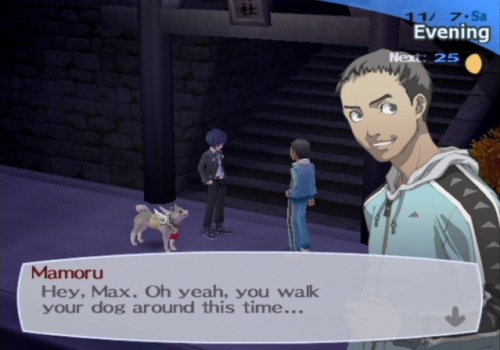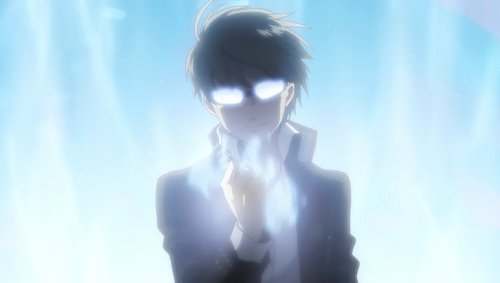While Atlus' Persona games started as a spin-off from the older-sibling Shin Megami Tensei series, they have undeniably come into their own. Supported by a huge fan base, bolstered by tons of spin-off properties, Persona is now in the same weight class as Japanese giants like Final Fantasy and Dragon Quest.But what sets Persona apart from those franchises is its modern setting, taking place in some version of Japan or even in the heart of Tokyo itself. As it explores Japanese society and culture, the Persona series gives its characters their namesake powers—actually called "Personas"—to explore human concerns, anxieties, and the big questions that attend them.
Advertisement
What is interesting is how each game ostensibly tackles the same themes with a lot of the same vocabulary, yet the message completely changes with each new story. Particularly in light of the stark contrast Persona 5 introduces, the Persona games show a philosophical curve that started taking shape when Katsura Hashino started directing with Persona 3.In Japan there is a lot of stress on balancing your raw emotions and private self—honne, as Japanese calls that private aspect of the self—with the societally correct ways to conduct yourself—tatemae. While certainly not a phenomenon only found in Japan, culturally there is extra emphasis placed on keeping the self in check to keep the peace.This can be anything from accepting obligations you don't agree with (Yukiko's struggle with her family business in Persona 4) to not confronting issues which would cause embarrassment or harm (the school staff not addressing Kamoshida's abuse in Persona 5). In many ways this tension can feel like a battle between the "true self" and the masks people are obligated to wear, and the Persona series since 3 has largely been about coming to terms with the former in order to fulfill those latter obligations.Persona 5 appears to represent a complete break with that philosophy. Where Persona 3 uses these "true selves" as a means to understand and fulfill obligation, and Persona 4 suggests handling that personal baggage with care, Persona 5 says to dance and dine with the devil himself.
Advertisement
Persona 3 is perhaps the most orthodox and traditionally "proper" of the three games. It begins in the middle of the action: we don't see how much of the cast originally acquired their Personas, as they're already seasoned vets when the story begins. What we do know, however, is that these powers have not come without consequences: Many have lost loved ones because of their collateral damage. One former member left due to an accident caused by a Persona. Despite this, the characters of Persona 3 join the shadow hunting team called SEES not only to save their lives, but everyone else's as well.

Certainly at the beginning of the game, SEES feels like a graveyard-shift job: There is the chain of command, the task, and a group of skilled coworkers. The boss tells you to complete as much as you can by a deadline. Everyone has their specialized role. Make sure you clock in on time.As more characters join the cast in Persona 3, it becomes increasingly clear that the characters are not just doing a job, but are driven by a sense of obligation. Plenty of characters have their gripes, but they keep fighting day in and day out because they are the only ones who can do it. Brought into a situation where only the Persona users can contain the danger threatening the world, they suck it up and do their job. The Persona is just a means to the end of duty.Almost two years to the date later, Persona 4 comes skipping along with a message about the power of friendship.
Advertisement
This entry takes the sharp turn inwards when presenting how everyone acquires their Personas. Each character must confront their Shadow, the out-of-control version of their "True Selves," and both recognize and accept their own flaws and inner darkness. Only then do they gain control of their Persona and its power.Unlike Persona 3, the Personas do not come off as a tool, but rather as issues that you—as the player and the protagonist—are working through with your friends. Although boss Shadows may only be characters' most extreme emotions (and in many cases are just the character's perception of how they are viewed by others), there are chunks of truth in each. Many of the characters you meet simply want to be accepted, along with any baggage they might have.It is only through acceptance that they may prove useful in the battles ahead. Sometimes this means taking responsibility for one's selfishness, lack of self-esteem, anxieties, or depression. Each character's problem is unique, and the solution begins with acceptance.
This compromise comes after fierce denials of their true selves, spoken with soothing tones as the Shadows transform into their new partners, their Personas."I knew [the shadow] wasn't lying… But I was so ashamed I didn't want to admit it." "A side of me I couldn't forgive. That I tried to ignore." "You're a part of me, but I kept refusing to admit that you existed."
Advertisement

It's not always as positive and heartwarming as it sounds, particularly with two of the LGBT-leaning characters: Kanji and Naoto. While there is much debate among the Persona community about each character's true orientation, Kanji and Naoto's arcs seemingly regress in the face of the game's themes. Kanji, a closeted gay man according to many readings of the game, comes to the conclusion that he must repress his sexuality and also accept that it will continue to be a punchline.Naoto, a trans man, ends up detransitioning once all is said and done and then both he and the game appear to suppress his gender identity, as Mattie Brice described in her own essay on the character.Despite the game's theme of acceptance, the direction of Kanji's and Naoto's arcs point in the opposite direction. While the rest of the cast have a chance to redeem themselves and move past their inner conflict after their interventions, Persona 4 doesn't grant Kanji and Naoto the same catharsis and liberation. They are pushed to accept themselves in a narrow-minded manner. Both story arcs come off as a real misstep after the empathy that is shown toward everyone else.Where the characters in Persona 3 and 4 had to be responsible and self-mastering in some way before obtaining their Persona, Persona 5 takes a completely different approach. The Personas in 5 (and given the visual cues of the yellow eyes are actually the character's own Shadows à la Persona 4) have a sinister voice, urging the user to embrace their inner vengeances and desires. It's not only admitting that they have these vehement thoughts, but after agreeing to act on them that they may obtain the power to fight back.
Advertisement
The pent up frustrations are given the loudest voice for the crime-fighting Phantom thieves."Thou art willing to perform all sacrilegious acts for thine own justice!" "The other you that exists within desires thus." "Nothing can be solved by restraining yourself!"
And the results are quite striking when compared to Persona 3 and 4's "accept and thus receive" message! As a "contract" between the characters and their Personas are set, they rip off their mask, blood spews, and their vigilante Persona is unveiled. Both emerge with a smirk and thousand-yard-stare, ready to kick ass and take names.Much of this attitude comes out of the game's clear politics, which touches on contemporary Japanese anxieties and deep frustration and contempt for a complacent and passive mainstream. As the Phantom Thieves fight against true-to-life villains who abuse their power, enabled by a system and culture that chooses to do nothing, Persona 5 urges the characters (and players) to have the courage to embrace their fury and use it to fight back. Persona 5 is the most modern punk rock game I've ever played.In many ways Persona 5 disagrees with Persona 3 and Persona 4's themes of the self. Persona 5 makes an argument for a form of selfishness that the other games said had to be heavily managed. Although the goals in each game are different, the Phantom Thieves tackle their challenges with a much more head-on approach. From abusive teachers, the pervasive mob, and corrupt politicians, their anger has more justification given the real world problems presented—issues the creators felt important enough to include despite a very upfront "work of fiction" disclaimer in the first seconds of the game.While Persona has kept its traditional RPG mechanics, its views of the self have greatly changed with each installment. The evolution of thought through the Persona games has been fascinating, flowing from an acceptance of the uncontrollable to a call for full-on revolution. As the games changed settings from a fictionalized Japan to one that pulls from current events, the game's motivations have also changed, urging players to break their public facade in the name of a greater change.For such a high-profile series, this is certainly bold. It's hard to know if the next installment will be as cathartic as Persona 5, but the statement has certainly been made: Wake up, get up, get out there.